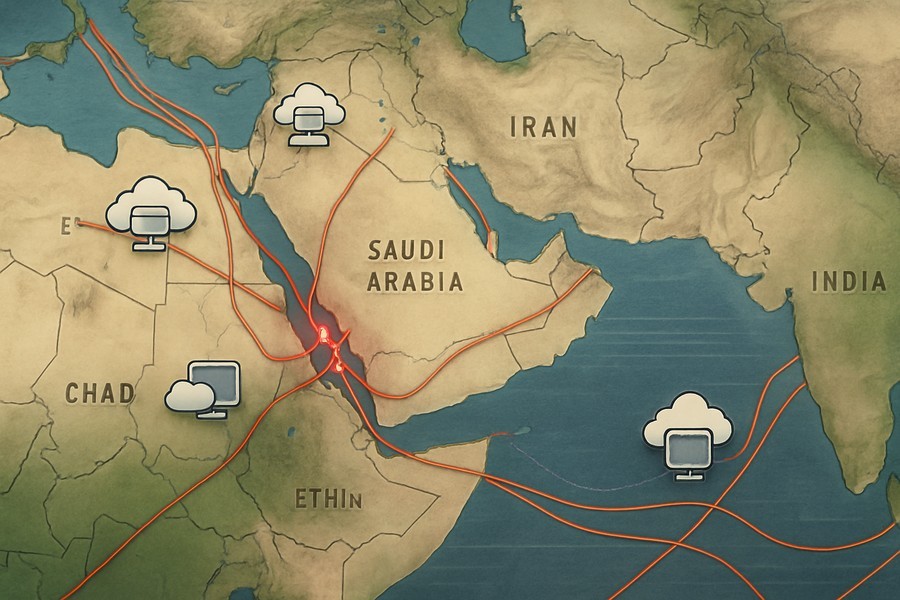
Red Sea Undersea Cable Damages Disrupt Internet in Middle East and South Asia
Internet issues have been felt across the Middle East and South Asia as a result of several undersea cable damages in the Red Sea. The tech company, often scrutinized for its association with Israel during its ongoing conflict with Gaza, confirmed this in a statement. The statement, however, did not elaborate on the cause of the damages.
Impact on Cloud Computing Services
According to a recent update posted on its website, the tech company mentioned that "the latency of network traffic passing through the Middle East might increase due to the undersea fiber cuts in the Red Sea." While its cloud computing services, the world's second largest, were impacted by the cuts, the company assured that the general network traffic remained unaffected.
Furthermore, the company clarified that "Network traffic that does not pass through the Middle East is not impacted. We will continue to provide daily updates, or sooner if the situation changes."
Internet Connectivity Watchdog Reports "Degraded" Connectivity
NetBlocks, an internet connectivity watchdog, reported "degraded" internet connectivity in several countries, including Saudi Arabia, Pakistan, the United Arab Emirates, and India, which resulted in slow speeds and inconsistent access. NetBlocks attributed these connectivity issues to failures in the SMW4 and IMEWE cable systems near Jeddah, Saudi Arabia.
One of the largest telecom providers in Pakistan issued a warning to its customers that the country "may experience some degradation during peak hours." The telecom provider also mentioned that its international partners were actively working to resolve the issue.
The Significance of Undersea Cables
Undersea cables serve as the backbone of the internet, carrying global data traffic. The Middle East, in particular, functions as a crucial link between Asia and Europe. These cables are susceptible to damage from ships' anchors and can also be targeted in attacks, which can lead to widespread disruption.
In early 2024, Yemen's internationally recognized government-in-exile claimed that the Houthis planned to attack undersea cables in the Red Sea. While several cables were cut, the Houthis denied any involvement.
Cloud Services Used for Surveillance
Investigations have found that the tech company's cloud services have been storing information, including intercepted phone calls from the occupied West Bank and the Gaza Strip for Israel's military. The company denied having any knowledge that Israel's cyber-intelligence division was using its cloud services for gathering information through mass surveillance. However, an investigation was launched in August.
